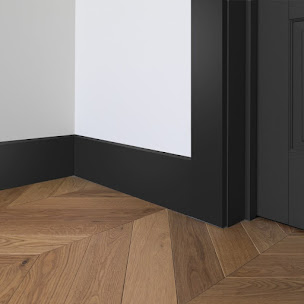Decking Tiles and their Types?
Decking tiles are a stylish way to complete a deck, and there are a variety of styles to select from. These Decking Tiles can also be made from composite wood materials and come in a range of finishes. Natural stone resources can also be used to make decking tiles.
Marble Tiles: Marble is softer and more porous than granite, so it needs to be sealed to withstand foot traffic and the environment. Because of its unusual veined finish, which many homeowners appreciate, it has a sophisticated charm. Marble tiles are available in a range of colours, from white to black. Rough marble tiles are a better choice for outdoor flooring than smooth polished marble since they are more slip-resistant.
Deck Tiles Made of Composite Wood: This is a softer substance than Ipe. Composite wood, unlike genuine wood tiles, requires less upkeep. Composite wood has the benefit of being appropriate for usage in extreme weather situations such as heavy rain, ice, and snow. Furthermore, it resists colour fading. The disadvantage of this material is that it is susceptible to mildew and mould.
Tiles made of ceramic: Because of the translucent silica sand surface coating, ceramic decking offers excellent anti-slip capabilities. This substance absorbs water more effectively than granite. Ceramic tiles that are thinner demand greater attention. As a result, heavy cast iron furniture, especially with uncovered legs, is not suggested. Commercial uses of ceramic decking are uncommon.
Deck Tiles Made of Teak: Teak is a well-liked timber. Because of its great weather resistance, it is commonly utilized for outdoor applications. Despite the fact that teak is slightly softer than Ipe, it nearly never warps or twists as much as Ipe wood under severe circumstances.
Deck Tiles Made of Ipe Wood: Ipe is one of the most difficult woods to work with. It is insect, mould, rot, and decay resistant. Our Wooden Decking Tiles are great fire resistance. Furthermore, even under harsh conditions, this material shows no inclination to distort or twist. Ipe wood can withstand harsh weather conditions such as ice and snow.
Tiles of Slate: Slate tiles are utilized in both functional and ornamental applications. Slate is a medium-hard substance that may be scratched somewhat with sharp instruments. It is advised that you apply a specific slate sealer if you live in a very harsh climate.
Deck Tiles Made of Granite: Granite is a long-lasting, hard, and powerful substance. It's thought to be the best choice for commercial use. Granite resists stains better than slate. The anti-slip capabilities of the hammered surface finish are superb. It's true.
Limestone: Because limestone is a porous, softer stone, it will require special treatment to avoid stains and weather damage. It also reveals wear quickly, making it unsuitable for high-traffic areas. They're also prone to cracking throughout the chilly winter months. Limestone aficionados can't get enough of the intriguing texture created by the distinctive perforations in the stone. Limestone is a light-colored stone with a spectrum of colours ranging from white to brown. Polished limestone tiles become slick when wet, but non-slip tumbled variants are available for decks near pools and open-air patios.




Comments
Post a Comment